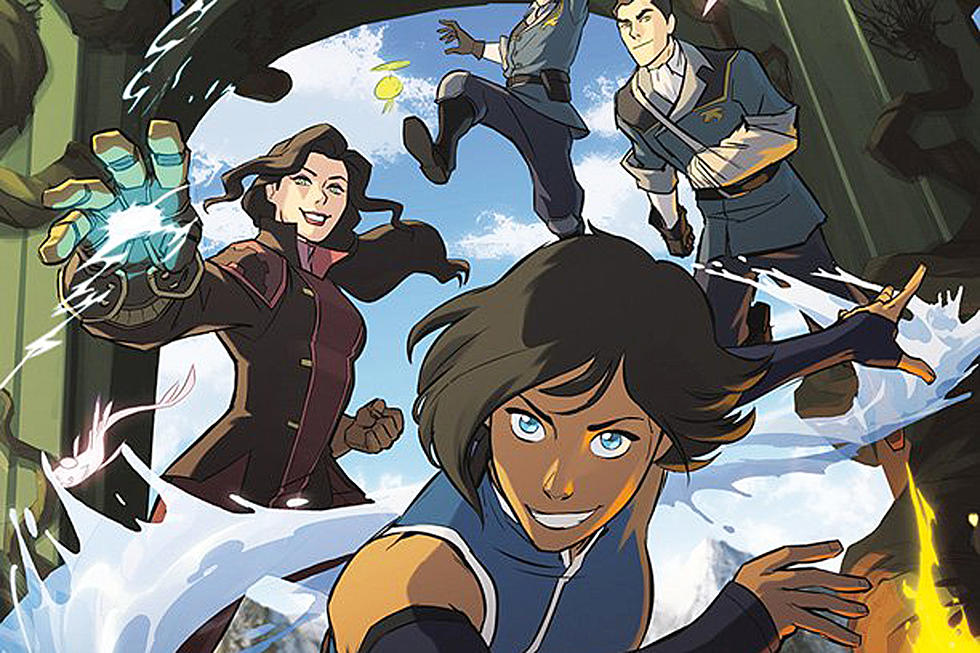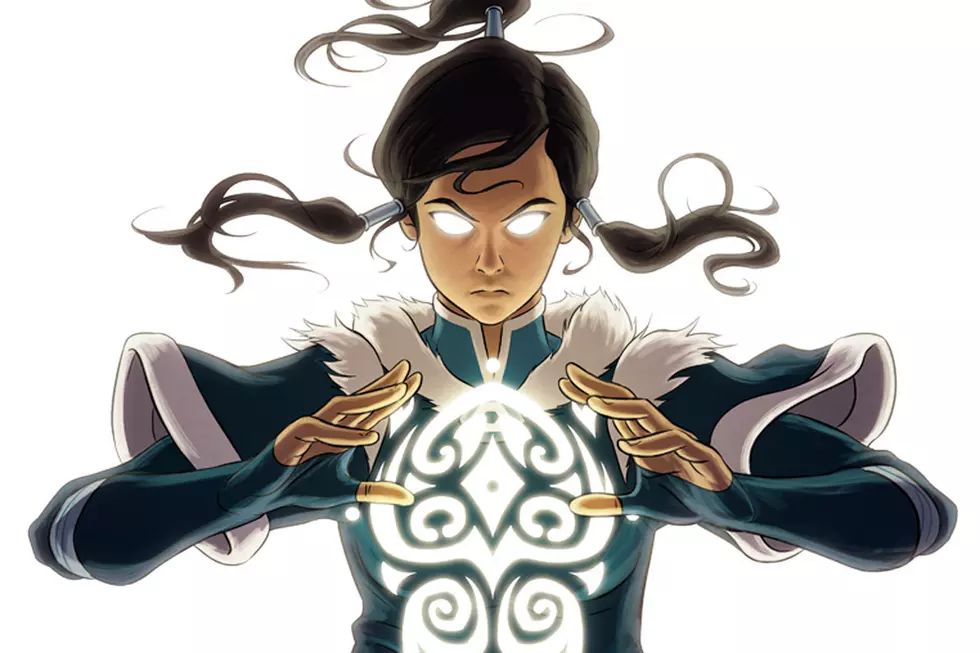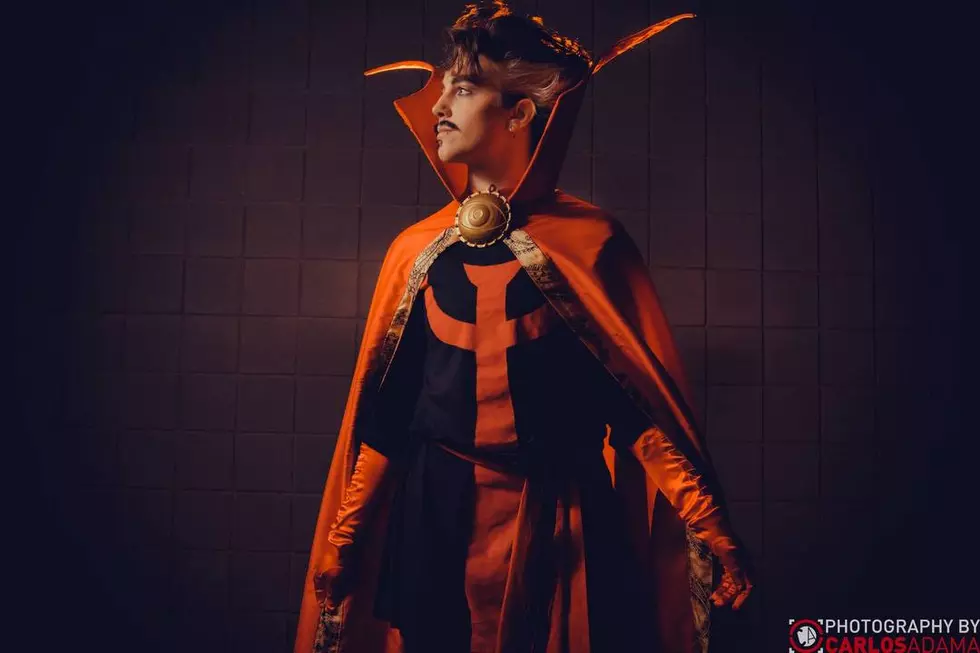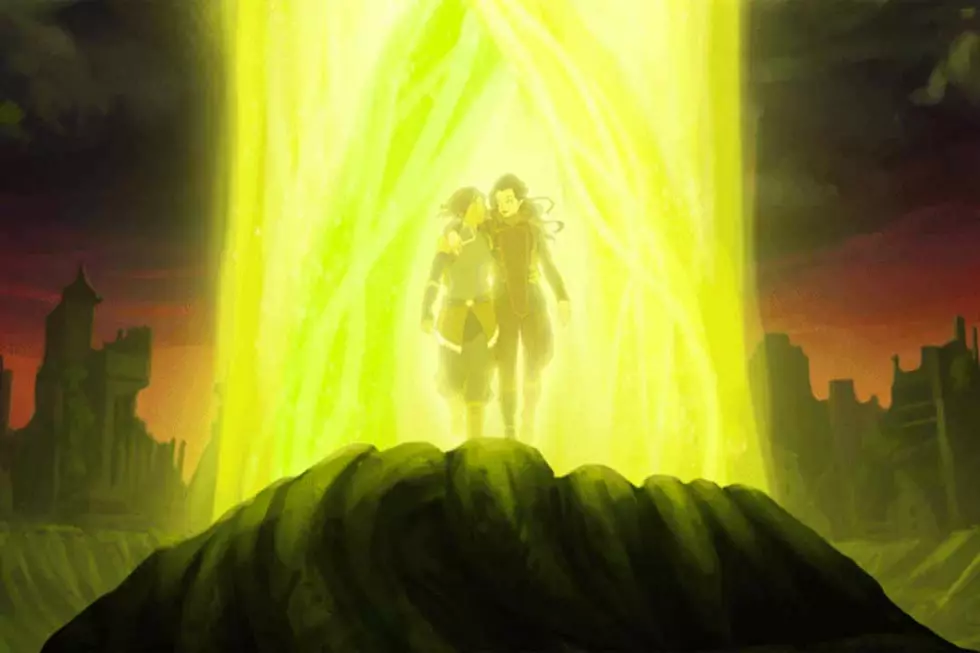
Fantasy Changing Reality: The Progressive Legacy Of Korra’s Legend
I don’t really do escapism. It’s not that the media I consume isn’t described as such, nor even that I have something against the concept. I just rarely feel as though I….escape. I mean, I enjoy the books I read and the games I play. And I suppose they keep me from considering the quotidian details of my life as I engage with them. Like, no, in the most banal sense, I am not thinking about groceries as I play Portal. But there’s a power people invest in the concept of escapism—whether they celebrate or deride it—and I just never seem to get it. It’s not a big deal, really. It’s never a metric by which I measure anything. I shrug and move on.
I escaped into The Legend of Korra.
Which is funny, really, because I loved the series best at its gloomiest—as a glance at my post history makes obvious. At the end of Book 3, I covered the crumbling infrastructure of Korra’s world. At the start of Book 4, I consulted Roger Griffin’s The Nature of Fascism to discuss Kuvira’s pull with the public. At the season’s midpoint, I analyzed the role of posttraumatic stress disorder in Korra’s character arc. Believe me when I say that, no matter what I’m doing, I am always ready (and eager!) to deliver a sermon on early 20th century Japanese anarchist movements in relation to the Red Lotus. I am all about taking Korra’s darkest moments way too seriously, and it obliged me with mountains of material to work with.
But even as I became that one guy who insists, no, it’s totally for adults too, stop judging me, watching Korra was always an experience of freedom. I’d never been able to articulate why, until this season’s The Battle of Zaofu. I watched as Korra, Kuvira, Suyin, Jinora, and Opal filled the screen, brawling for the fate of their world. Opal calls for a violent defense. Kuvira’s army waits for her command. Korra is felled by a panicky hallucination. Family, geopolitics, and mental illness snarl together at the season’s halfway mark, and a hundred comparisons beg to be drawn. I think of Renly, Stannis, and Catelyn on the field in A Storm of Swords as much as I think of the climax of The Scarlet Letter. I think of these stories and I think of how people would sneer at my presumption--but I’m not looking to elevate Korra through association. I seek, instead, to highlight how nothing else, high or low culture, would have the guts to do a scene like this involving, exclusively, women of color.
I love superhero comics. I love science fiction. I love fantasy. I love fiction. But in them, no matter the warp drives, enchanted swords, or 300-page orc taxonomies, I am never allowed to be anything but a woman. And “woman,” in prestige drama and greasy paperback alike, means lesser—as does “not white.” This can be as dismal as, say, a female character in League of Legends’ armor options, but hell, even the “enlightened” stuff lacks the guts to actually upend the deepest assumptions we make about gender and race. I love the risks George R.R. Martin takes with Daenerys’s rise to power, but he sure does love describing her recently developed breasts. And when it comes to people of color, well: The Dothraki are marauding barbarians, the Summer Islanders and the Dornish are the hedonistic brown people, and the Meereenese affront Dany’s cultured sensibilities with their love of dog sausage and bloodsport. Or hey, let’s consider the Bioshock series. It’s brilliant and boundary-pushing, sure, but I can’t quite ignore its habit of stoking the fires of man angst with tragic female fates. I can’t quite ignore that, despite supplemental material informing us of her genius and good intentions, Daisy Fitzroy dies the Angry Black Woman.
We praise the best of science fiction and fantasy as inventive, innovative, and imaginative, but that aversion to the mundane rarely extends to gender or race. Over and over again, we turn our noses up at the revolutionary possibilities of these genres, choosing instead to recreate the restrictions of our own world—just, you know, with dragons. We choose, over and over again, to use medieval England as our jumping off point. We decide that another Chosen Dude is exactly what our stories need and maybe, if we are feeling especially gracious, we give his girlfriend a sword and let her get a good line or two in about no man telling her what to do. We put bridge officers in minidresses. We put women in refrigerators. I read these books, I watch these television shows, I play these games, and I enjoy them. But they keep me in my place.
It’s tempting to say that The Legend of Korra smashes these restrictions--but that implies a certain level of attention. Korra, rather, acts as though they don’t exist. Why couldn’t a single, grumpy, fifty-something policewoman be one of the major supporting characters in an all-ages fantasy tale? Why couldn’t the heroine be a dark-skinned, visibly muscular tomboy? Why couldn’t you create a fictional world with absolutely no white people in it? Why couldn’t that become one of the most celebrated television sagas of the last decade—something people of every age and background watch?
As much as I love fantasy and science fiction that grapples with issues of race and gender, it was incredible to immerse myself in a world in which they just didn’t exist. And it was all so natural, so unabashedly done; the genocide of the Air Nomads was a plot point, but never Korra’s interest in pants over parasols. Freedom is in the foundation stones of the series: early on in Avatar, Aang makes a necklace for Katara, which she delightedly accepts. Sokka cracks a joke about “going into the jewelry-making business” instead of saving the world. Earnestly, Aang replies that he doesn’t see why he can’t do both. This moment—so nakedly sweet—encapsulates the entire series’ approach. Why not? Why can’t the male hero be a committed pacifist, devoted to love and compassion above all? Later on, in the second season, Aang cries upon witnessing a birth. He thanks the young couple for restoring his hope. Why not? Why not a male hero—an Asian male hero, shaped deeply by Buddhist beliefs—committed to love and joy? Why not a character like Sokka, who learns to let go of toxic machismo as he trains to be a warrior? Why not a character like Zuko, shaped by aggression and fear, journeying to “an era of love and peace” over the course of three seasons? Why not a series rebuking gendered, Western-centric values from beginning to end? Why not?
Then along comes Korra, and every week it burst with women’s stories. Old women and young women, bitter women and innocent women, tough women and passive women. Leaders of nations, captains of industry, spiritual guides. Hippies and cops, divas and dictators. None of them white. A profusion of women solves a slew representational problems right off the bat: I’m fine with Ginger’s vapidity, for example, because she doesn’t stand in for half the population. But mostly, it’s just so exciting to be so entirely a part of this fictional world—to have so many options! To imagine oneself as hero or villain, respected elder or eager child. To experience the pathos and triumph of the spotlight. To be unleashed, finally, into the verdant wilds of imagination. To entirely, unrestrainedly embrace a fantasy.
To escape.
I escaped into The Legend of Korra, but I return from it a changed person. Its fantasy informs my reality--its fantasy pushes me towards change. I have seen myself reflected in Korra, at long last, and I have seen her triumphant, in her world and my own. She began a naïve, hotheaded teenager collapsing beneath divine responsibility. She ends it a beacon of hope and healing. She ends it all of these things in addition to being brown, muscular, female, and, as the ending implies, bisexual. We loved her and we loved her story and we believed in it. And if we believed in that, as people from a world of restriction and limits—we can accomplish anything.
More From ComicsAlliance



![Bring on the Spam Musubi: The State of Asian Representation in Comics [Roundtable]](http://townsquare.media/site/622/files/2016/05/CA-khans-Alphona-feat.jpeg?w=980&q=75)





